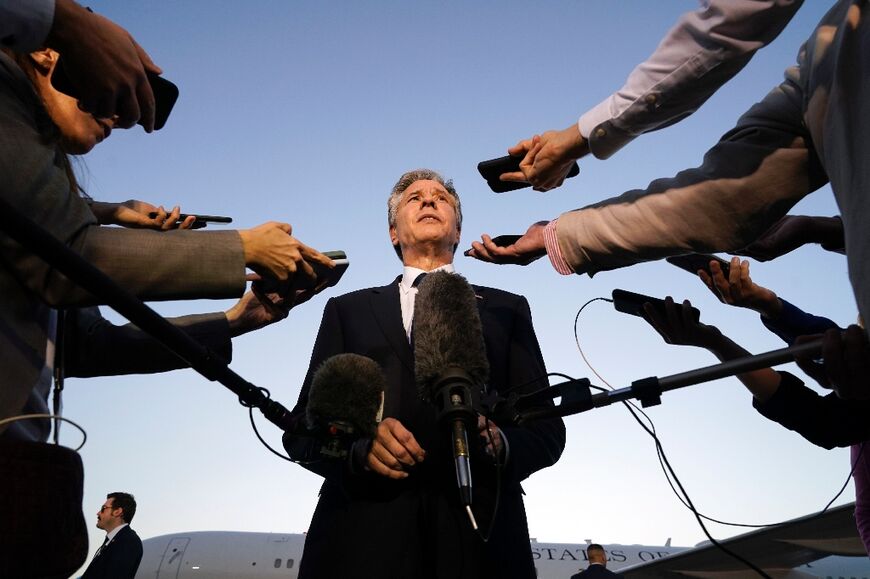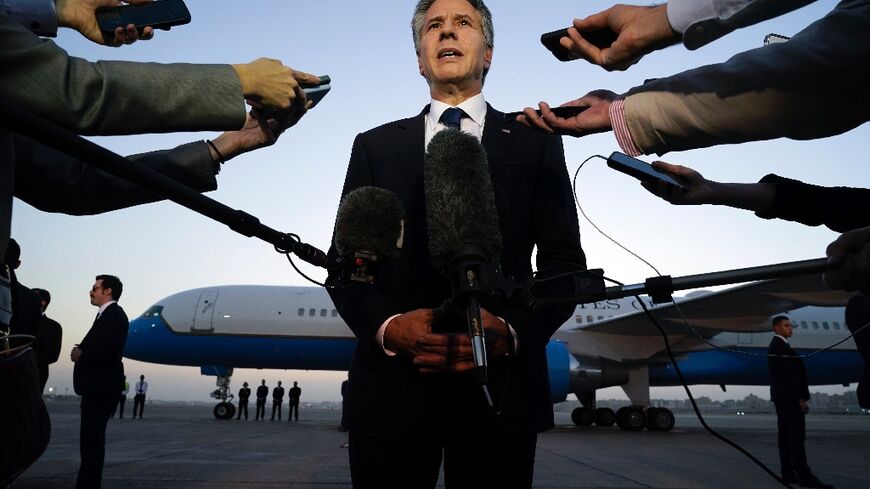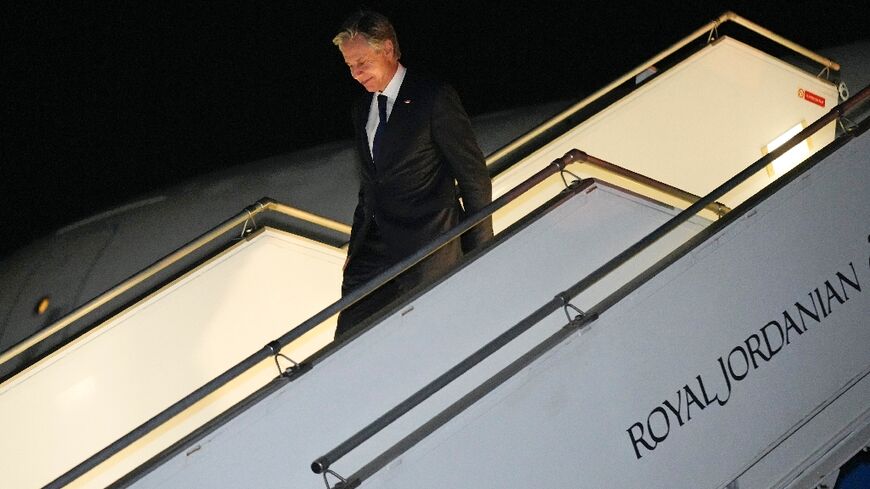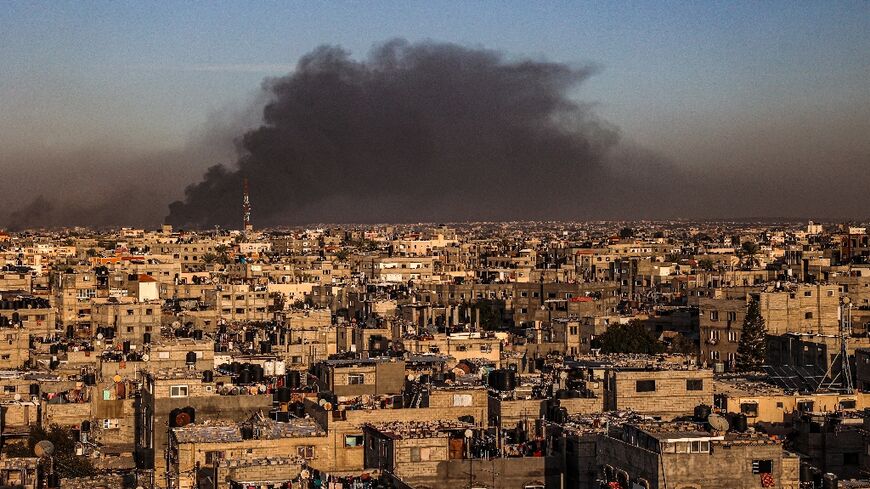Israel warns of long war as Blinken feels conflict firsthand
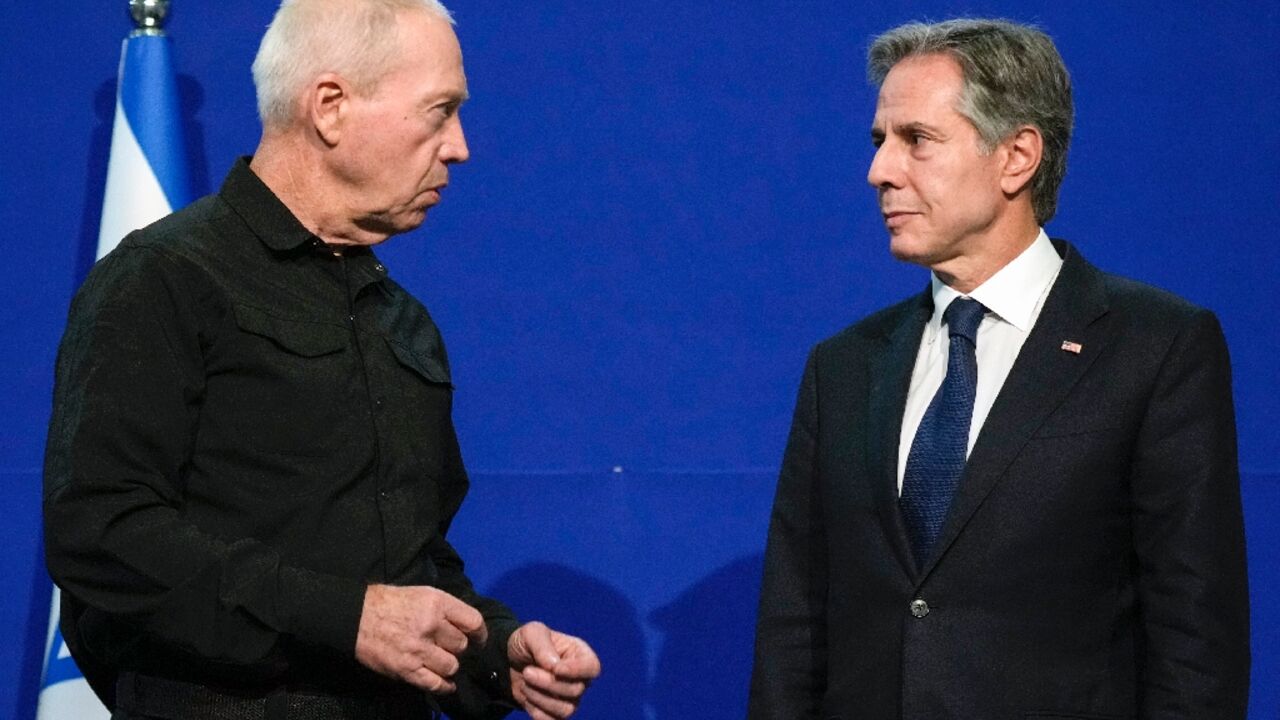
Israel warned Monday of a long but winning war against Hamas as US Secretary of State Antony Blinken made his second visit within days to promise full support after a major attack.
The top US diplomat, back in Israel after visiting six Arab countries, visibly witnessed the intensifying conflict when air raid sirens went off as he met with Prime Minister Benjamin Netanyahu's security cabinet at the defence ministry complex in Tel Aviv.
Netanyahu, Blinken and their aides were taken into a bunker for their safety for five minutes until an all-clear, State Department spokesman Matthew Miller said. Reporters, who were ushered down a stairwell, heard the dull thud of the US-backed Iron Dome system intercepting a rocket.
Israel is preparing a ground invasion of Hamas-ruled Gaza after the militants' October 7 attack and has been bombarding the blockaded territory for days, with civilians accounting for most victims on both sides.
Defence Minister Yoav Gallant said that both Israel and the rest of the world could "see with their own eyes" the robust US support -- through two visits by Blinken, one by Defence Secretary Lloyd Austin and the deployment of two US aircraft carriers to the Mediterranean.
"Let me tell you, Mr Secretary, this will be a long war, the price will be high, but we are going to win -- for Israel, for the Jewish people and for the values that both countries believe in," Gallant told Blinken after talks.
Blinken replied that the United States was "deeply committed to Israel's right -- indeed, its obligation -- to defend itself".
"You have -- and will always have -- the support of the United States," Blinken said.
The trip comes as President Joe Biden considers visiting Israel at the invitation of Netanyahu -- a right-wing leader with whom he once had rocky relations -- after the worst attack in the United States ally's 75-year history.
Blinken was also scheduled to meet Israel's main opposition leader Yair Lapid, who has accused Netanyahu of failing to prevent the attack and refused to join an emergency government which Netanyahu formed with another opposition leader, former defence minister Benny Gantz.
- Concern for civilians -
Israel declared war on Hamas after the Islamist group's fighters broke through the heavily fortified border and shot, stabbed and burned to death more than 1,400 people, most of them civilians.
Israel has responded with relentless bombing, killing around 2,750 people, the majority ordinary Palestinians, in the impoverished Gaza Strip which it has long blockaded.
The Biden administration has stopped short of calling for a ceasefire and Blinken sought to rally support against Hamas on his Arab tour.
US officials said Blinken heard wide opposition to Hamas but acknowledged he also understood the need to address the plight of Palestinians in Gaza.
"Civilians should not have to suffer for Hamas's atrocities," Blinken said Sunday in Cairo.
Under US pressure, Israel on Sunday resumed the supply of water to the southern Gaza Strip after earlier vowing to keep out all supplies of food, water and energy.
But harsh conditions persist and aid agencies on Monday warned time was running out to save millions of people as fuel, food and other vital supplies dwindle.
The United States has also been pushing to reopen the Rafah crossing with Egypt to aid and foreign nationals. It named a special coordinator to spearhead humanitarian relief into Gaza, retired ambassador David Satterfield, who started work on Monday.
The Biden administration has warned against more extreme measures such as mass expulsion of Palestinians, a prospect feared by Palestinian president Mahmud Abbas, a Hamas rival based in the Israel-occupied West Bank.
Israel pulled out of Gaza in 2005. Shortly thereafter, Israel imposed an air, land and sea blockade of the territory that was intensified after it came under the control of Hamas in 2007.
Hamas is considered a terrorist group by Israel and the United States.
Blinken held talks in four of the five Arab states with diplomatic relations with Israel -- Jordan, Egypt, the United Arab Emirates and Bahrain.
He also visited Saudi Arabia, which put its own normalisation bid with Israel on hold after the violence, and Qatar, a US partner that maintains relations with Hamas.


